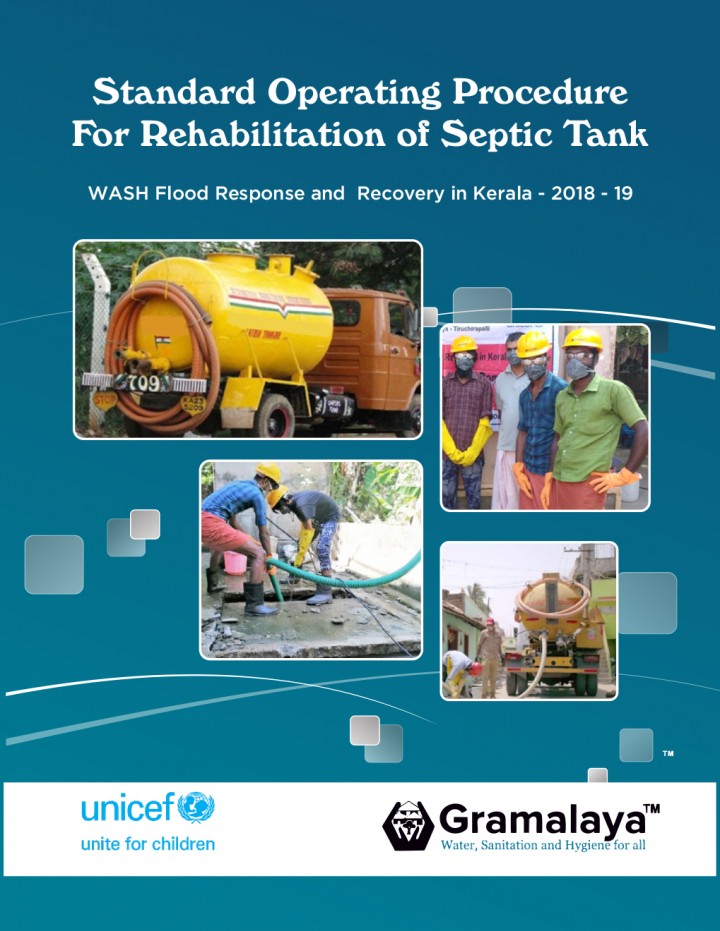Standard Operating Procedures for Desludging and Rehabilitating Septic Tanks Gramalaya (2019)
The aim of this document is to explain the field level procedures in cleaning septictanks and the safe disposal of sludge. There are very few less than 4 major Fecal Sludge Treatment Plants in the state of Kerala. The floods of 2018due to south west monsoon, caused a very great havoc in 13 districts of Kerala by inundating all the wells and septic tanks. The flood water mixed with faecal sludge and the black water of the flooded septic tanks contaminated the wells causing health hazards.
UNICEF and the Government of Kerala associated with Gramalaya started the relief works in 5 most affected districts of Kerala. The local Panchayat authorities and the State Government authorities assisted the team in assessing the damages caused to the wells and septic tanks of the villages in the districts of Alappuzha, Ernakulam, Pathanamthitta, Thrissur and Wayanad. A project planned to repair and retrofit the septic tanks and the wells to create models of the method of cleaning and repair in such situations.
Bibliographic information
Gramalaya (2019). Standard Operating Procedures for Desludging and Rehabilitating Septic Tanks Gramalaya and UNICEF
Filter / Tags
PractitionersGuidelines and manualsEnglish
Downloads
Standard Operating Procedures for Desludging and Rehabilitating Septic Tanks
Type: application/pdf
Size: 8.18 MB

